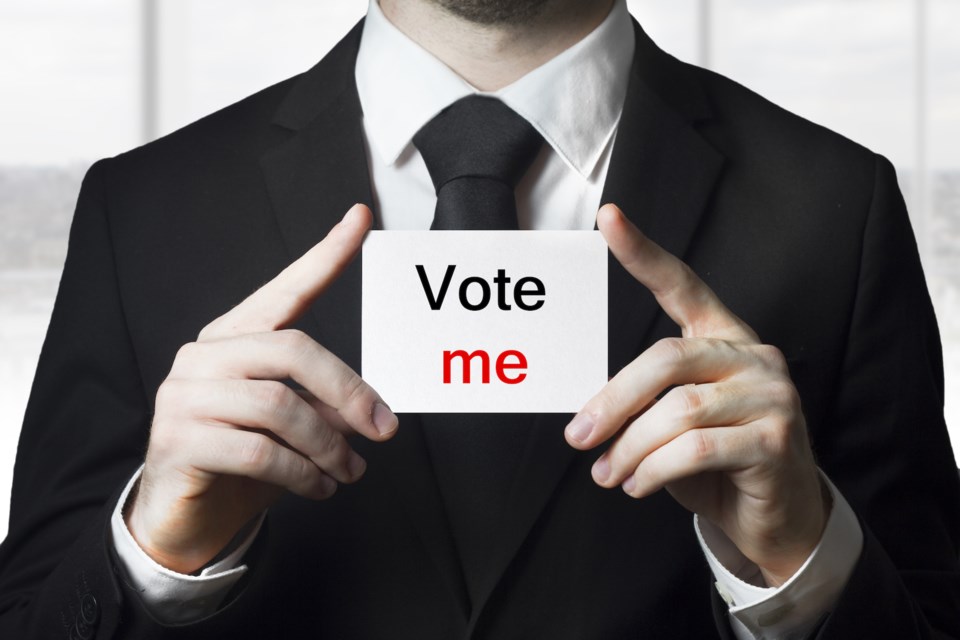This Labour Day weekend, I’m thinking about politics. Obviously.
How many times have you heard someone running for office say, “I’m not a politician.” It’s weird, right? I mean, you don’t hear a lot of plumbers say, “Sure, I’ll fix your toilet, but don’t call me a plumber.”
This has been a long-term refrain in the political sphere, especially among candidates trying to appeal as a populist; it’s a way of saying that politics is a dirty business so those who participate in it are dirty. In order to separate oneself from the muck, you must appear to enter the mud patch reluctantly, and if you must enter it, you are the one who will make a point to finally clean it up.
This was a common point of view before the modern era of conspiracy culture and electoral doubts, but the former built the base for the latter. If your average politician is in the business of serving themselves, then why wouldn’t they get in bed with nefarious forces that trade influence for power?
With that idea in your head, it begins to fill you with doubt if, for example, you should happen to be on the website for a United Nations sustainability agency and you see the name of Guelph’s mayor on there as a participant. You’ve thought for years that the U.N. is a bad idea, you’re deeply concerned that all politicians are self-serving, so why is Guelph’s mayor listed on this U.N. website?
The answer, to some, is obvious: This person is an agent for the U.N. And if they’re an agent, then that means they’ve got a mission. And if they’ve got a mission, then it’s almost certainly a clandestine mission, so they’re definitely not going to confirm or deny when asked directly.
From there, maybe you just get confrontational.
Last Friday, a man named Elliot McDavid walked into the town hall in Grand Prairie, saw the deputy prime minister waiting for an elevator, and called her an “[expletive] traitor!” and an “[expletive] bitch!” and that she should “Get the [expletive] out of this province!" Meaning Alberta. Meaning the province in which Chrystia Freeland was born in 1968.
What was McDavid there for? Was his anger rooted in a matter of concern? Was he mad about Canada’s foreign policy? Domestic policy? McDonald’s refusal to bring back the McPizza? He’s never said, and the video on social media shows a man pleased with himself for calling the most politically powerful woman in Canada a “bitch” and not disappointment that she didn’t address his issue.
Now this isn’t to say that you can’t confront a politician. You can be angry, you can demand answers, and you can even be disappointed in those answers, but did McDavid want to debate Freeland about policy, or does he believe she’s the human appendage of a global cabal with evil intent? Maybe he hates her because she left Peace River for Harvard then Oxford.
Aside from the personal harm against Freeland, there’s also the harm to the profession. Why should we expect people to want to run for office, especially if they’re a woman or person of colour, if “part of the job” is keeping your head on a swivel for angry people screaming at you and their potentially violent intentions?
What would you think if someone walked into the Dollarama and told the person stocking the shelves to “get the [expletive] out of the province”? Do you yell and scream at your kid’s school teacher if they’re at the grocery store because your concerned about some book they’re teaching? Do you call the waitress at your favourite restaurant a “traitor” because the menu’s changed?
But all of this stems from that core idea at the top when you don’t phrase being a politician as a job. If you’re ashamed of the title, you’re also ashamed of the job, and if you’re ashamed of the job, then why the heck are you doing it in the first place?
Think about your own job. We all know someone at the office that doesn’t carry their own weight, someone you’re constantly running cover for, and yet they perplexingly remain employed. We also know the person in the office that does 10 hours of work in eight, offers support without invitation, and only rarely complains if ever. Most people, at least, are always just trying to do their best.
This is politics too. We can all think about the ones doing their job well, and the ones barely doing their job at all, but at all levels there’s all kinds of people doing the best they can under enormous pressure, and almost an equally enormous amount of scrutiny.
None of that is to say that our representatives are above scrutiny, they absolutely must be scrutinized, but “[expletive] bitch!” is not a critique, it’s tacit dehumanization because if someone’s not human then you don’t have to treat them like one.
Running for office is hard, engaging with constituents and helping them navigate complex government systems is hard, and being in the public spotlight as you help make decisions that affect thousands of people is hard, but it’s easy to keep a civil tongue in your head, even if your representative has done something to tick you off as opposed to just having the audacity to be a Canadian politician.
But maybe that begins with our politicians admitting that they are what they are. It’s Labour Day, be proud of your labours.
